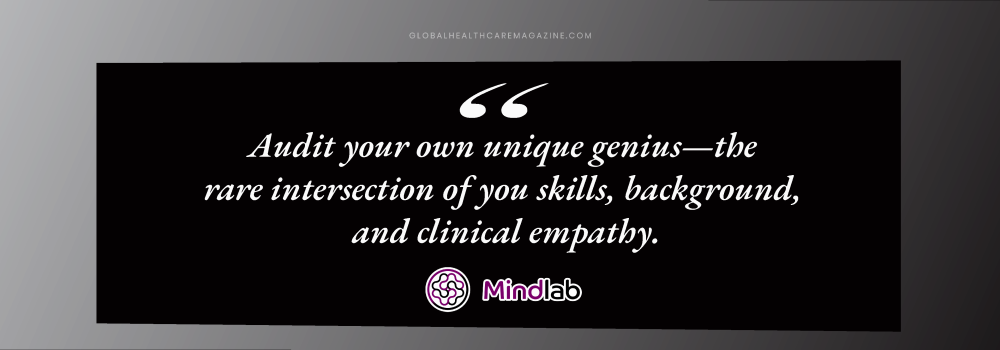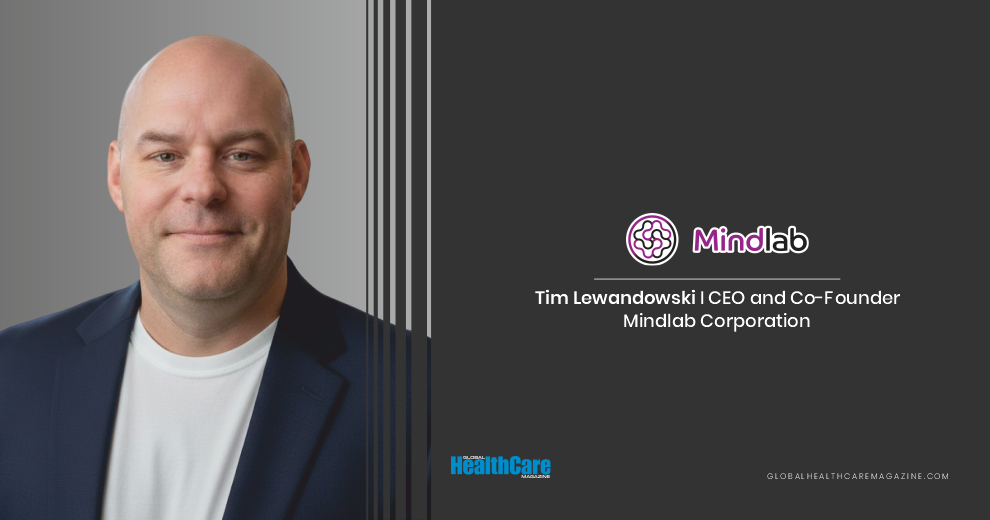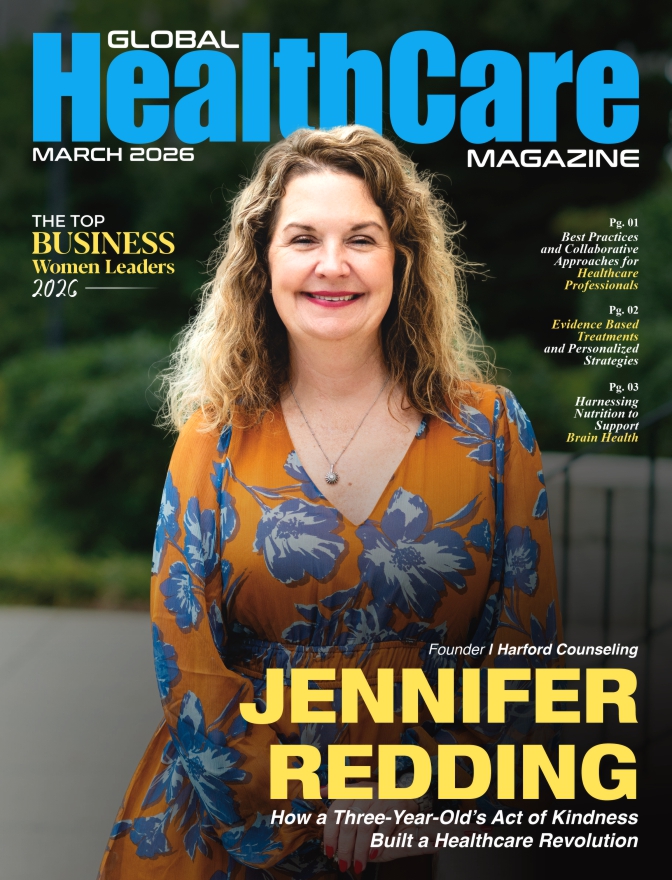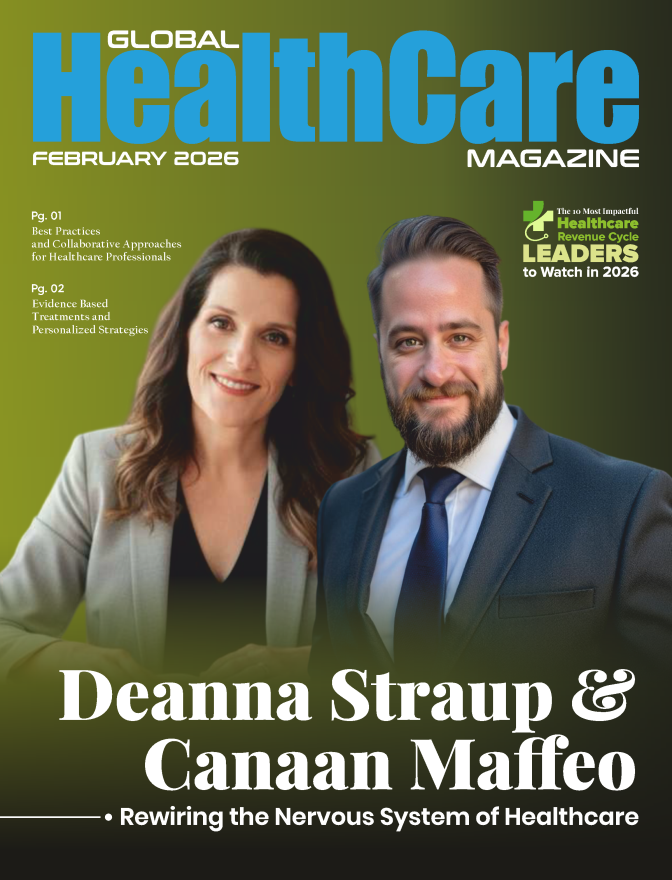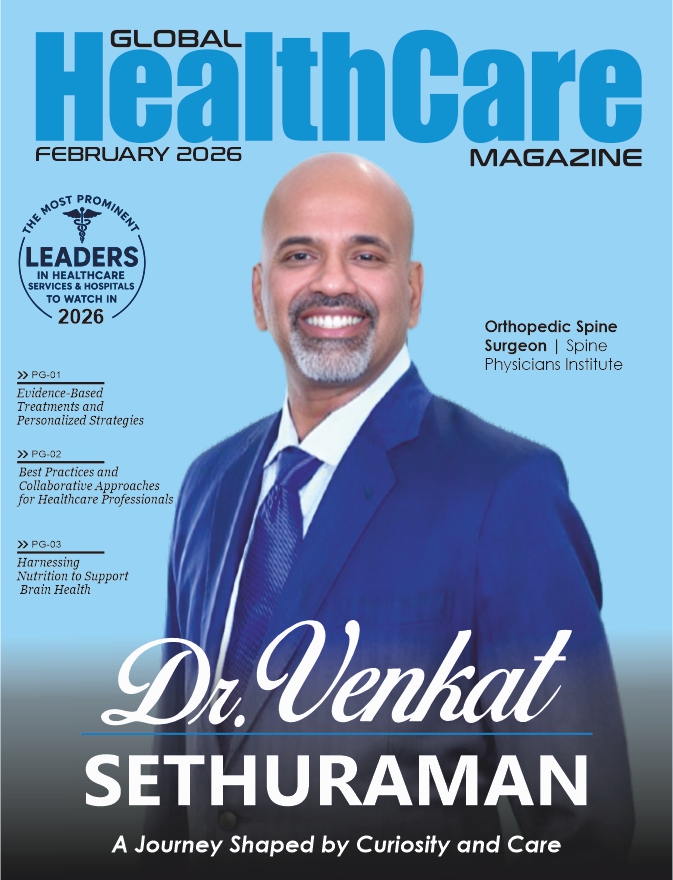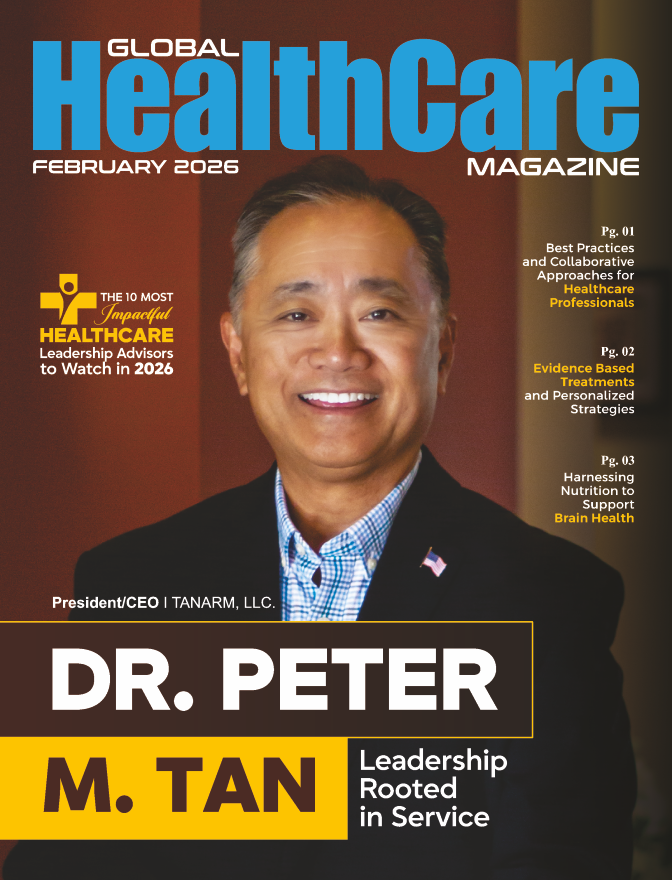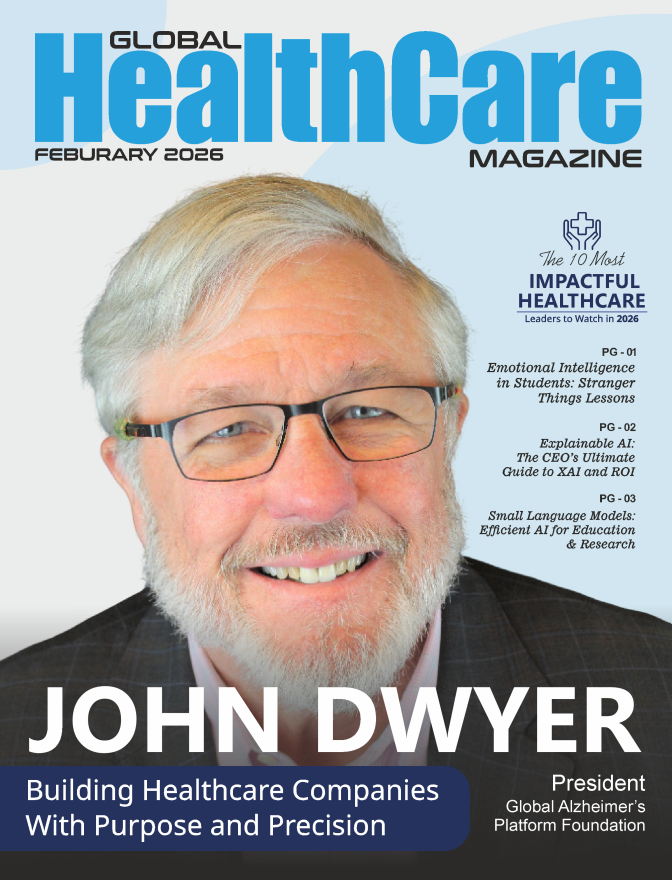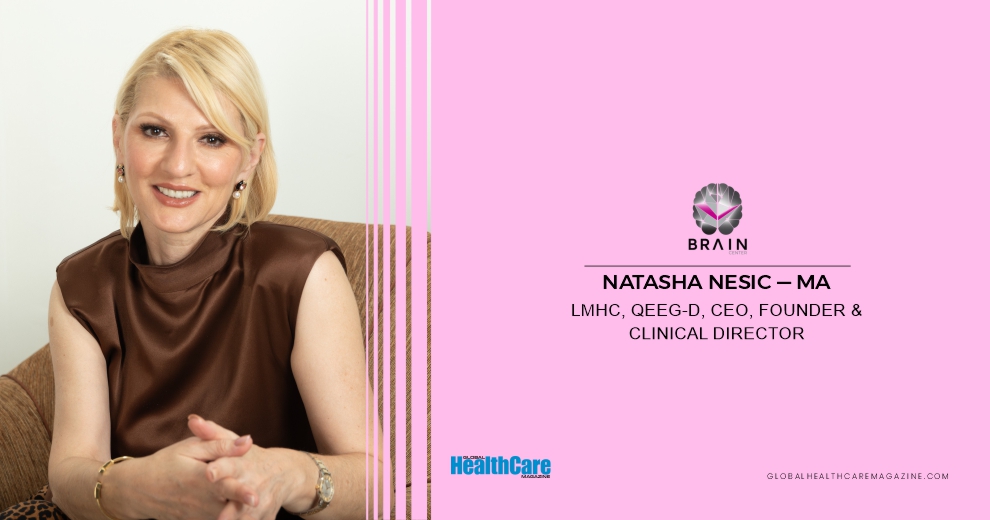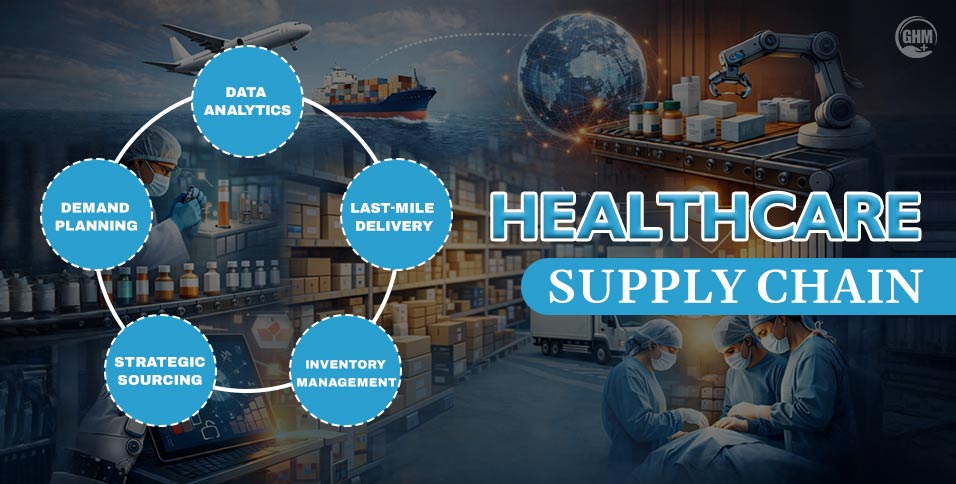There is a particular kind of human connection that exists in a crisis. It is not the filtered, curated connection of a social feed. It is raw, urgent, and profoundly real. It is the sound of a voice on a warm line, a stranger reaching out in a moment of vulnerability, seeking not an algorithm or a chatbot, but another human. At the Mental Health Association of San Francisco (MHASF), this connection happens at a staggering scale. Their peer-run Warm Line manages nearly half a million patient contacts every year. It is a massive, complex, and deeply human operation. And the man responsible for its operational leadership, its scale-up strategies, and its resilience is Tim Lewandowski.
This fact is the single most important thing you need to know about him. Because Tim Lewandowski is also a globally recognized health-tech strategist and the CEO and Co-Founder of a visionary startup, Mindlab Corporation.
In an industry overflowing with “shiny features” and solutions disconnected from reality, Tim is a bridge. He is a man with one foot planted firmly on the front lines of clinical care and the other striding confidently into the future of digital innovation. He is not a theorist. He is an operator. His nearly twenty-year career, with deep clinical expertise from Northwestern and USC, has been a relentless pursuit of a single idea: to translate the messy, complex “clinical reality” of helping people into actionable, sustainable technology. He saw where innovation was failing, and he built a new model to fix it. He is a tech leader reshaping human connection because he is, first and foremost, one of its most critical guardians.
The Integrity Gap
Tim’s journey began as a mission-driven clinician in orthopedics and neurology. He quickly moved into leadership, but he carried the front-line perspective with him. He watched as promising innovations sputtered and died, and he saw a clear pattern. “My passion emerged from seeing how innovation fails when it doesn’t consider the human element,” he recalls. The tech was clever, but it didn’t understand the user journey. It didn’t speak the language of the provider or the patient.
He saw a chasm, an “integrity gap.” The health-tech ecosystem, he recognized, “is flooded with ‘shiny’ features but often lacks the clinical integrity and operational rigor needed for sustainable impact.” The noble “helping humans” vision was being lost in the race for revenue.
This realization became Tim’s mission. He had clinical expertise. He had operational and strategic experience. And with his work and education spanning over 12 countries, he had a global, pragmatic business perspective. He decided to build a company that would live in that gap. Mindlab Corporation, founded in 2025 in San Francisco, was born “to bridge this integrity gap,” to serve as a new model for building “tech for good.”
The Dual-Impact Model
Mindlab is not a typical startup. It is, like its founder, a dual-impact entity. It is an answer to the question: How can you be both a mission-driven innovator and a successful entrepreneur?
The first arm of the company is direct product creation. This is where Tim’s team builds their own “tech for good,” creating and scaling assets like Pocket Kado, a clinically-based sleep and wellness app. It is an expression of their philosophy, a tool built with the clinical integrity Tim saw missing in the market.
The second arm is Mindlab Apex Consulting. This is, perhaps, the most unique part of his work, and it is where he most directly reshapes human connection. Apex is an advisory arm, but it is not a traditional consultancy. Its focus is on a very specific person: the early-stage health-tech founder, the “CEO by necessity.”
This is a person Tim understands intimately. This founder is often a brilliant clinician or engineer, driven by a powerful mission, but now finds themselves isolated and overwhelmed by the “unforgiving operational stressors of securing funding, managing cash flow, and leading a team.” They are trying to reconcile their mission with the harsh realities of the market.
Tim becomes their partner. “Apex is transformative,” he says, “because we transition founders from ‘CEOs by necessity’ to effective leaders.” He does not just offer advice; he builds a relationship of deep trust and niche expertise. He guides them through mission-critical decisions: how to scale a technical team, how to navigate the turbulent waters of bootstrapping versus private equity, and how to develop their own pragmatic leadership style. He gives them the operational frameworks to “minimize time spent on day-to-day survival and maximize their focus on the core product and strategic growth.” He connects them back to their “true passion,” the very reason they started their company.
The Proving Ground
This model, however, would be purely theoretical if not for Tim’s other job. His role as COO of MHASF is not a side gig; it is the “proving ground” for the entire Mindlab philosophy.
“As CEO [of Mindlab],” he explains, “I maintain balance by treating our day-to-day operations as a critical ‘proving ground.’ This hands-on engagement ensures our insights are battle-tested.”
When Tim advises an Apex client on how to scale their operations, he is not referencing a textbook. He is referencing his own daily work of managing the complex logistics of half a million patient contacts. He “walks the walk.” This grounding in clinical reality, at scale, is what builds the “deep, pragmatic rapport that is unique to Mindlab Apex.” His clients trust him not just because he is smart, but because he is doing it. This dual role is the living embodiment of his “unique genius,” an intersection of skills that few, if any, other leaders possess.
This synthesis of strategy and operations is fueled by his “small-but-mighty” team. He points to his Chief Design Officer, Steph Wong, as a key collaborator whose talent lies in “translating strategic ideas into high-impact, scalable content, app features, and market messaging.” She is the engine that translates Tim’s battle-tested vision into the products and messages that fuel their growth and clinical impact.
The Test of Visionary Resilience
The ultimate test of Tim’s leadership, and his philosophy of connection, came not at his startup, but at the nonprofit. “The true test of my leadership came over the past six months,” he recounts, “amid significant shifts in nonprofit funding allocations that necessitated a painful reduction in force at MHASF.”
A reduction in force is a crisis of human connection. It is a moment that can shatter a mission-driven culture. Tim’s response, alongside MHASF CEO Mark Salazar, defines his leadership style. He “moved beyond cost-cutting to visionary resilience.” They did not just manage the decline. They immediately launched a new strategy to rapidly diversify their funding streams and forge novel partnerships. “This challenge affirmed my belief,” Tim says, “that responsible leadership, even in crisis, must focus on scaling impact and restoring mission rather than simply managing decline.”
This is what he teaches his Apex clients. This is what he means by “pragmatic startup leadership.” He proved, in the most difficult circumstances, that even in a crisis, the mission—the human connection—must remain the focus.
The Measure of Connection
Given his philosophy, it is no surprise that Tim measures his own success in human terms. While Mindlab tracks all the traditional metrics for operational maturity, the “core measurement of Mindlab Apex is sustained founder velocity and confidence.”
His ultimate metric is something he calls the Apex Recommendation Score (ARS). It is a single, powerful question: “If you could go back in time, would you choose to partner with Mindlab all over again?”
This question is not about ROI or deliverables. It is a measure of trust. It is a metric of relationship, of human connection. “This question ensures,” Tim says, “we are delivering enduring, irreplaceable value.” His greatest achievement, he notes, is the success of his clients, their ability to achieve their own funding and regulatory milestones under his guidance.
Tim gaze is now fixed on the future, on scaling this impact. “I am most excited about cultivating early-stage partnerships in the pediatric/adolescent school wellness space,” he says. As he scales Pocket Kado into this new market, he is also looking for the next generation of founders, building relationships that will “help these emerging companies become future Apex clients.”
Presence, Not Perfection
For a man who operates at this level of intensity, “balance” is a critical, non-negotiable component of his leadership. But, like everything else, his view of it is pragmatic and human. “The key is presence, not perfection,” he says. He prioritizes being fully present for key moments at home, and more importantly, he models this for his own team. “I commit to modeling and enforcing boundaries for the Mindlab team,” he states. “By creating a culture where they can pursue their own balance, I reinforce my own philosophy and build a more resilient and focused organization.”
Tim Lewandowski’s final message to founders and leaders is the very core of his “why.” He sees the future of healthcare as dependent not on technology alone, but on conscious, compassionate leadership. He urges every founder to “audit their own unique genius”—the rare intersection of their skills, background, and clinical empathy. “Don’t just innovate; disrupt with your full, unique strength.” It is the ultimate human ‘who’ that drives the strategic ‘why,’ turning clinical expertise into global, world-changing technology.
Quotes
